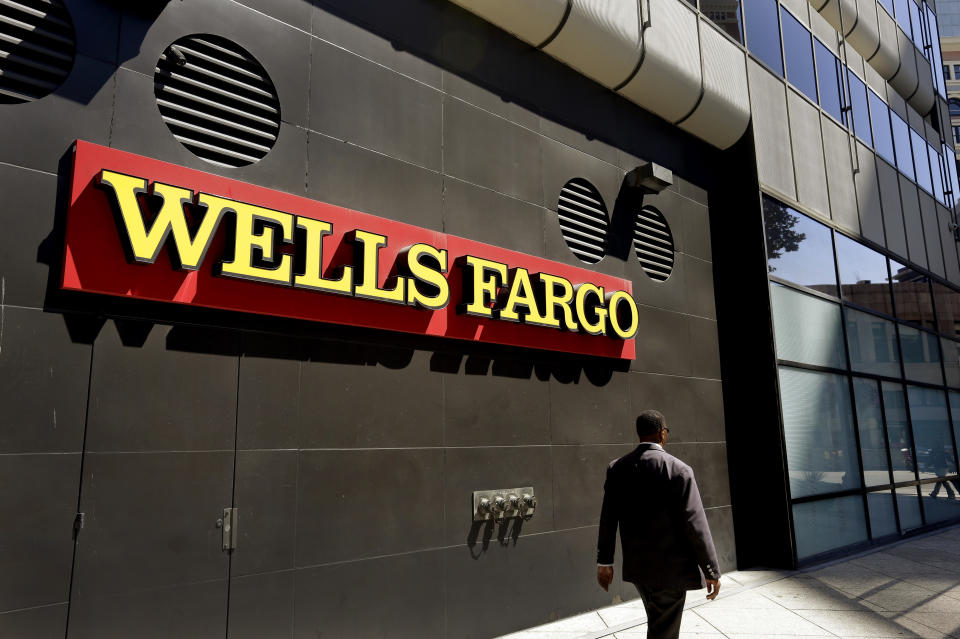Consumer watchdog is making it easier for customers to sue banks
The Consumer Financial Protection Bureau announced a new rule Monday that makes it easier for groups of consumers to band together to form and join class-action lawsuits. Companies under the bureau’s jurisdiction will no longer be able to strike down class-action suits and force them into arbitration.
CFPB director Richard Cordray announced that rights of groups of consumers to a day in court is “a cherished tenet of our justice system” and “that no one, no matter how big or how powerful, should escape accountability if they break the law.” In a 728-page study of arbitration in 2015, the CFPB found that group lawsuits were frequently cut down.
The rule will apply to financial services providers under the CFPB’s jurisdiction, which includes companies that lend, store, move, or exchange money. (Most bank and credit card account contracts include arbitration clauses, which limit your recourse if you have a legal issue with the company.)
Arbitration has become very popular with companies looking to avoid lawsuits
In the past decade, companies have curbed many lawsuits with mandatory arbitration clauses that prevent consumers from going to court, bound instead to the arbitration process. After its scandal in which it created up to 2 million fraudulent accounts, Wells Fargo (WFC) asked a Federal District Court to order customers to private arbitration instead of the class-action suit they were pursuing. Thanks to public pressure, however, the bank settled.

In response to criticism that government regulators already police behavior of financial institutions, Cordray noted that “consumers should be able to stand up for themselves and pursue their own legal rights without having to wait on the government.”
With the rule announced Monday, groups of consumers will be able to band together to form class-action suits in situations they may not otherwise have bothered with. “In most situations, hiring a lawyer to handle the consumer’s own individual case is not practicable,” Cordray said. “For example, when faced with the daunting prospect of expending all that effort to recoup a $35 fee or even a $100 overcharge, it is no surprise that few people bother to try.”
Cordray anticipates pushback from a Congress that is friendly to the financial services industry, which would pay more under class-actions compared to arbitration.
“I am, of course, aware of those parties who have indicated they will seek to have the Congress nullify this new rule,” said Cordray. “That is a process that I expect will be considered and determined on the merits. My obligation as the Director of the Consumer Bureau is to act for the protection of consumers and in the public interest.”
Most people don’t know if they have forced arbitration
The Dodd-Frank Act had tasked the CFPB with investigating forced arbitration and issuing regulation. In its report, the bureau found that three out of four people did not know whether their credit card agreement subjected them to forced arbitration. In reality, about half of all credit card agreements of the hundreds of millions of contracts had forced arbitration.
The rule, which will go into effect for new accounts in about eight months, will not prohibit individual forced arbitration – meaning individual consumers (as opposed to groups of consumers) could still be be blocked from going to court against financial firms. Individual lawsuits, the CFPB study noted, were not frequently blocked by companies in favor of forced arbitration. On a press call, Eric Goldberg, senior counsel at CFPB, said the agency did not choose to block individual forced arbitration because not enough information had been collected, but that it would be monitoring requests by companies to arbitrate.
The rule is not the first anti-arbitration rule or law to be issued in recent memory. The Military Lending Act of 2007 prevented forced arbitration for loans to service members, and the Dodd-Frank Act banned mandatory arbitration from most residential mortgages.
What should consumers do?
Should the rule make it without congressional nullification, the rule would go into effect 241 days after its entry into the Federal Register, which will likely happen before the end of July. But while the rule will go into effect eight months from now, it will not apply to agreements that are already made.
Because it’s not retroactive, Goldberg said consumers should open new accounts after the compliance period to make sure they are protected.
Ethan Wolff-Mann is a writer at Yahoo Finance focusing on consumer issues, tech, and personal finance. Follow him on Twitter @ewolffmann. Got a tip? Send it to [email protected].
Read More:
Cable’s new strategy? You can pay $5 to avoid commercials
How ringless spam voicemails became a partisan issue
How TripAdvisor hunted a robocaller that made 100 million calls to random people
Uber’s series of scandals has yet to put a dent in ridership